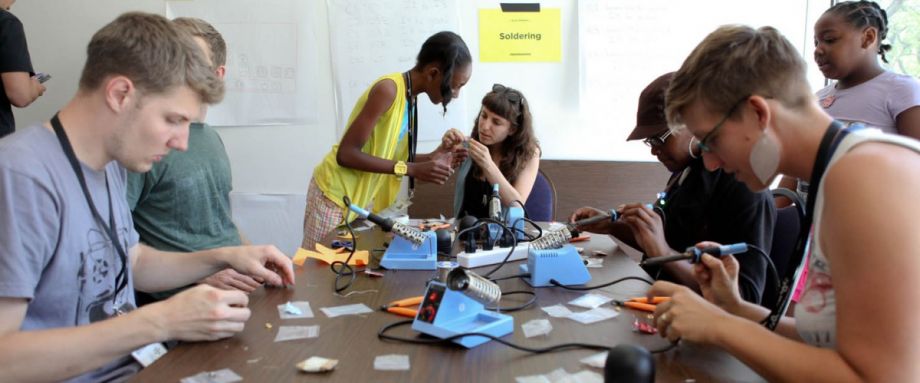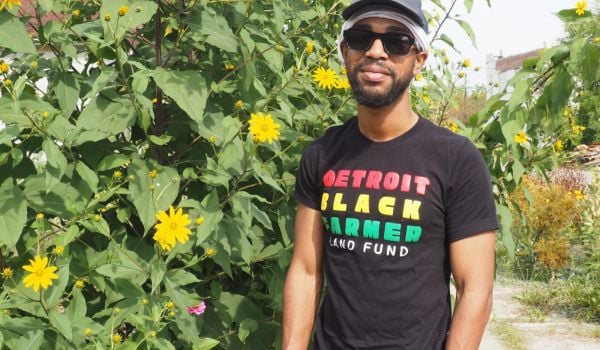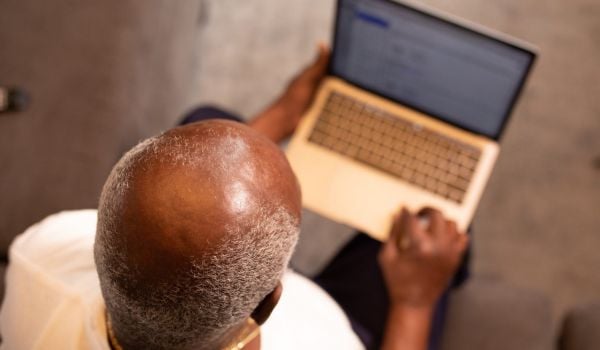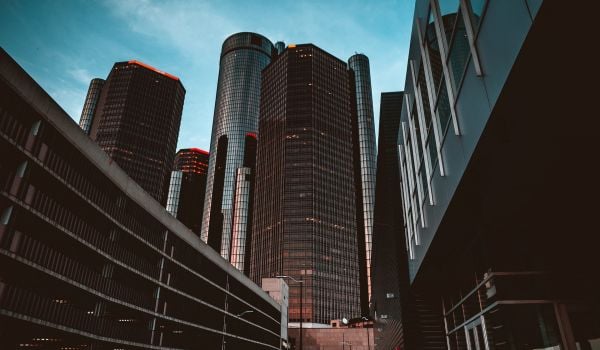After three years of urban planning and civic engagement, the Detroit Future City project is situating itself to implement a blueprint for its namesake city over the next 50 years. In another corner of town, another collaborative group is also organizing for Detroit’s future. In fact, it was doing it under the Detroit Future name first.
Allied Media Projects describes its work as “media strategies for a more just and creative world.” Awarded $1.2 million in stimulus funding under President Obama in 2010, AMP created a three-threaded program called Detroit Future to agitate around digital justice in Detroit. Through trainings, workshops, skill-shares, in-school curriculums and “discotechs” (“discovering technology” parties), this brand of Detroit Future has been building digital skills and access in the city’s neighborhoods, schools and among its youth for several years. It even has a media library where residents can check out video cameras, photography equipment, computers and full-stocked tool bags. (Disclosure: Both AMP and Next City, as well as Detroit Future City, are funded in part by the Ford Foundation.)
The idea isn’t just to build a media-savvy Detroit, but to substantively transform its communities, making them healthier, safer and more equitable.
Hundreds of emerging leaders have participated in AMP’s Detroit Future programs, and they’ve gone on to create publications, educational models and even build Ethernet infrastructure on Detroit rooftops. To capture the story of its work, AMP has been convening online conversations around the #detroitfuture Twitter hashtag since March 2011; the hashtag serves as way to build evaluation into its projects. AMP has archived more than 12,000 #detroitfuture tweets to date. The project is also chronicled on its website.
AMP had already moved to trademark the name “Detroit Future” with the U.S. Patent Office when the long-term planning project known as Detroit Works debuted under its new name in January. Marking the transition from planning to implementation, the project dubbed itself Detroit Future City (DFC).
The name overlap was almost certainly a coincidence. But as I wrote in this week’s Forefront story, it still cut close for AMP. The planning team at DFC was aware of AMP’s long history of work in the community. In fact, the organization was recruited to assist in what was then Detroit Works’ civic engagement effort — though AMP demurred because many community members it works with are opposed to the project.
I witnessed some of this pushback when I visited a Detroit Future Media training session at the AMP offices on a recent Tuesday night. The instructors asked if it would be all right if I observed the workshop. One woman — middle aged, wearing sneakers and a sweatshirt, her hair tightly knotted in the back of her head — said she wanted to be absolutely sure that I had no relationship with Detroit Works or Detroit Future City before she consented to my stay.
“I’m totally, 100 percent against that,” she said. There was also some murmuring among other students about how “they stole our name.” Notably, the people who are building skills through AMP’s Detroit Future are exactly the kind of people with whom DFC wants to ally itself as it works to activate the city’s varied communities toward a multi-faceted planning vision.
AMP did, after lengthy internal discussions, assist on a video game Detroit Works used to generate feedback from citizens. The group helped ensure that the characters in the game represented different lived realities in Detroit, like participants in the underground economy or a 16-year-old boy with a supportive family who nonetheless dropped out of school. These are the kinds of people who often get overlooked, accidentally and otherwise, among those drawing up high-profile outlooks for the city’s future.
AMP co-director Jenny Lee is a native Detroiter who was 19 when she participated in Detroit Summer, a youth-leadership program affiliated with legendary activist Grace Lee Boggs (who, incidentally, is featured in the documentary American Revolutionary, now screening across the country). Lee helped move AMP’s signature national conference to Detroit in 2007, where it’s been held ever since, and founded the Detroit Digital Justice Coalition in 2009. Through the latter, she helped secure a major stimulus grant through the federal government’s Broadband Technology Opportunities Program, which fueled AMP’s Detroit Future projects.
But as effective as AMP is in Detroit — it has earned support from the Open Society Institute and other major funders for its grassroots media work — it has received minimal local foundational support. “And it’s not as if we haven’t applied,” Lee added. That lack of local philanthropic backing contrasts with Detroit Future City, which is heavily foundation-funded.
Lee said there is on-the-ground confusion among residents about the Detroit Future name, with it not being clear who’s behind which civic-minded program. It has stoked dissension, as I saw during the training session, exacerbating the sense of many locals that Detroit Future City is not for them.
Partly because of AMP’s infinite collaborations and intersecting projects, it’s difficult to paraphrase the group’s work. Like DFC, the planning project, it resorts to jargon to describe what it does — “tracks” and “practice spaces” and “network gatherings.” But what’s plain about AMP is that it presents a powerful illustration of how Detroit’s future depends upon not just on a great vision, but also on grassroots community organizing. If DFC is serious about how its framework depends upon the multi-level decision-making of all types of people in Detroit, it will invest in organizers like those at AMP, which in turn will ignite more leaders — as the organization been doing for years.
“Too many people think community organizing is just grievance-based,” Lee said. “That’s a critical part, but there’s so much more to it about building effective institutions.” She ticked off a number of ways organizing takes positive shape, including Detroit’s tremendous network of urban farms, or non-profit schools that emphasize place-based education, or community-anchored businesses.
“Community organizing needs to be appreciated for the long-term value of leadership, and what leadership really means,” she said. “Besides deep listening, it’s about question-asking and having a critical eye. Which are all skills needed in media, which is why we focus on media.”

According to AMP co-director Jenny Lee, Detroit’s network of urban farms is one way community organizing has taken a positive shape. Credit: Tanya Moutzalias
This is what that concept looks like: Dakari Carter is a 19-year-old involved with Detroit Future Youth, a collaboration of 12 city organizations that gathers for media-centered skill-sharing. Members created a “curriculum mixtape,” a book and USB drive with multimedia lesson plans designed for classrooms to approach public education through the eyes of young people. Carter is tasked with taking the lead on selling the mixtape. He took a Detroit Future Media course on entrepreneurship, he said, so he could learn the business principles to do his job well. Right now, he’s working on a new website for the mixtape.
Piper Carter, a famed high-fashion photographer and the force behind the non-profit 555 Gallery 5E Gallery in Detroit, said the Detroit Future projects were formed through the intersecting principles of digital justice and environmental justice. “How does access to technology improve people’s consciousness about their environment?” Carter asked. The place-based approach to digital justice, she said, “had to be a principle.”
In practice, the Detroit Future programs are indeed changing the landscape of the city. “The classes teach community members media skills — video, audio, graphic design, the ability to be digital stewards and set up Internet towers and communication infrastructure,” Carter said. “They give the community opportunities to create their own businesses, and be more employable.”
What’s interesting, though, is that while these two projects have very distinct roots, their visions for Detroit appear to have considerable overlap. Both Detroit Future City and the Detroit Future programs insist that the city’s well being depends on the ability of all kinds of people, those with prestigious titles and without them, to make empowered and informed decisions in their communities. Both projects emphasize, and attempt to embody, radically collaborative processes.
When I spoke with Jenny Lee, she was moving forward in conversations with DFC leaders about the “Detroit Future” name. She’s not interested in turning the question of who owns “Detroit Future” into a contentious battle, whether legally or in the media. Instead, the two Detroit Futures are discussing the possibility of creating a “terms of use” document that will function like a community benefits agreement. That is, DFC can continue to use the name if it commits to certain participatory processes that ensure the project systematically integrates empowered community voices in its own decision-making.
This would be a venue for the planning project to draw from the wisdom of community organizers, like those at AMP. Meanwhile, AMP would be able to further the reach of its own vision for activating citizens to make “an honest attempt to solve the most significant problems of our day,” as described in its network principles.
Back at the AMP offices, where middle-aged residents were beginning to trickle in for a workshop that would have them building Ethernet cables and using hammer drills, young Dakari Carter was gesturing, a little nervously. But his words were clear: “I hope our work speaks for ourselves. That’s the real Detroit future.”
Correction: A previous version of this story reported that Allied Media Projects has never received any financial support from Detroit-area foundations. AMP did, in fact, receive a two-year $150,000 grant from the Troy, Mich.-based Kresge Foundation’s national Arts and Culture Program last year, though it was declined a grant from Kresge’s local arts program.

Anna Clark is a journalist in Detroit. Her writing has appeared in Elle Magazine, the New York Times, Politico, the Columbia Journalism Review, Next City and other publications. Anna edited A Detroit Anthology, a Michigan Notable Book. She has been a Fulbright fellow in Nairobi, Kenya and a Knight-Wallace journalism fellow at the University of Michigan. She is also the author of THE POISONED CITY: Flint’s Water and the American Urban Tragedy, published by Metropolitan Books in 2018.
Follow Anna .(JavaScript must be enabled to view this email address)
















